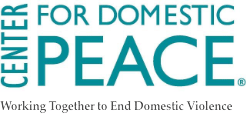Get Help For Sexual Assault Survivors in Intimate Relationships
What is rape/sexual assault?
Rape/sexual assault is illegal sexual contact (usually involving force) done upon a person without consent. Rape is also defined as sexual contact inflicted upon a person who is incapable of giving consent, due to either diminished physical or mental capacity.
What is intimate partner sexual violence?
Intimate partner sexual violence (IPSV) is rape or sexual assault that occurs between two people who currently have – or have had – a consensual sexual relationship. Intimate Partner Rape may occur in relationships that have an existing pattern of domestic violence.
Forms of Intimate Partner Rape and Sexual Assault:
It is important to realize that one does not have to have physically fought off or said “no” for an act to be regarded as sexual assault. Submission does not equal consent. Sexual coercion and assault within an intimate relationship may take many forms. Here are some examples:
- Pressure to engage in sexual activity
- Pressure to engage in sexual acts with which a person is uncomfortable
- Guilt tripping partner (“I find you so attractive that I can’t help myself”, “I need sex to relieve stress”, etc.)
- Attacking sexual areas of the body
- Physical violence/overpowering with physical force
- Continued sexual activity after it’s indicated that sexual activity is no longer welcome – even if consent was given initially
- Sexual intercourse while asleep or incapacitated
- Implying that a past rape was not rape or that “you liked it”
If you have been sexually assaulted…
It’s hard to know what to do, how to feel, or what your options are after a sexual assault. Below are some things to keep in mind. If you are in immediate danger or seriously injured, call 911.
- Your safety is important. Are you in safe place? If you’re not feeling safe, consider reaching out to someone you trust for support. You don’t have to go through this alone.
- What happened was not your fault. Something happened to you that you didn’t want to happen – and that’s not OK.
- Get help. Contact someone who may help you, such as law enforcement, your local rape crisis center or a person you trust.
- Marin Community Violence Solutions Hotline at 415-259-2850
- Center for Domestic Peace’s 24-Hour Hotline at (415)-924-6616 for cases involving intimate partner abuse
- National Sexual Assault Hotline at 800-656-HOPE (4673)
If someone you know has been sexually assaulted…
- Listen. When supporting a survivor of sexual violence, it is important not to be judgmental and not to take control away from the survivor. Communicate that it is not their fault and that you support and available for them if and when they are ready to talk. Avoid being judgmental, keep from second-guessing and resist placing any blame on him or her. Simply listen and accept what he or she says.
- Ensure safety. Make sure they are at a safe location away from the perpetrator. If not, consider helping them to a safe place if doing so does not pose a safety risk to you. If a threat to their immediate safety exists, contact law enforcement as soon as possible.
- Inform the survivor that they can access a rape crisis center for information, support and advocacy. Consider accompanying the survivor to the hospital or other places if he or she requests it.
- There is no “right” or “wrong” way to recover from a sexual assault. However, there are unhelpful, self-destructive ways of coping. Alcohol abuse, drug use, suicidal statements or increased behaviors with unhealthy outcomes (unprotected and/or anonymous sex, gambling, smoking, overeating, etc.) are sometimes warning signs that your friend or loved one needs to get professional assistance. Don’t be afraid to suggest they might need support from someone especially skilled to help him or her adopt more productive coping strategies.
